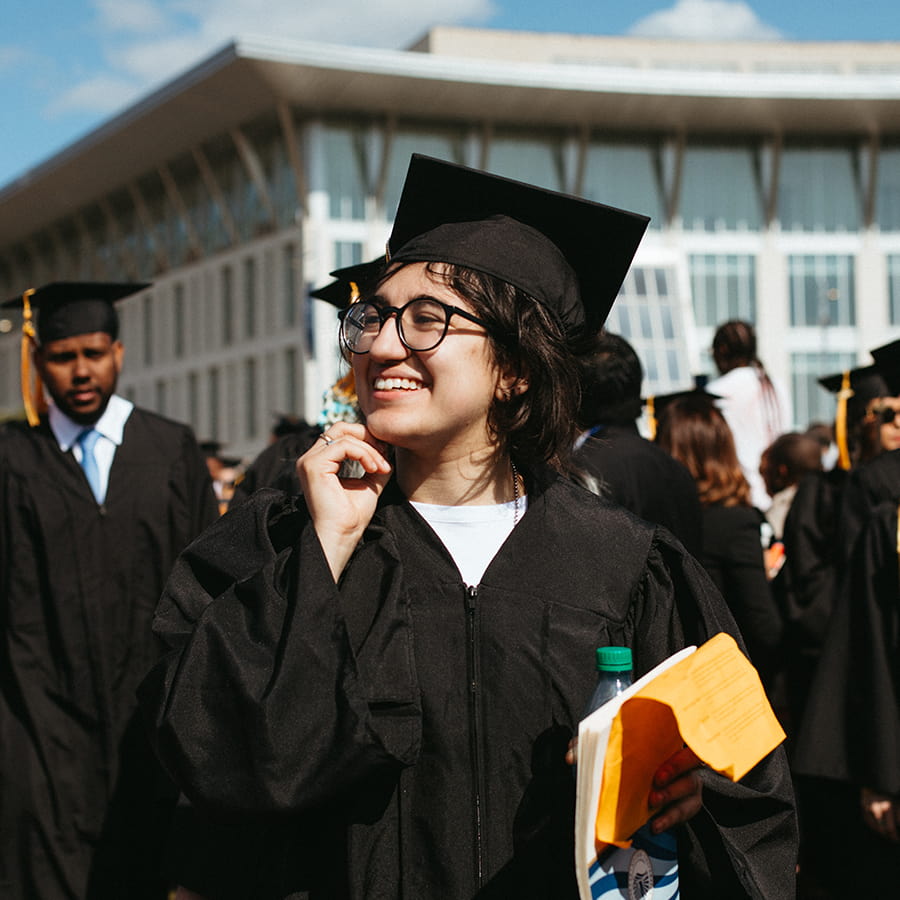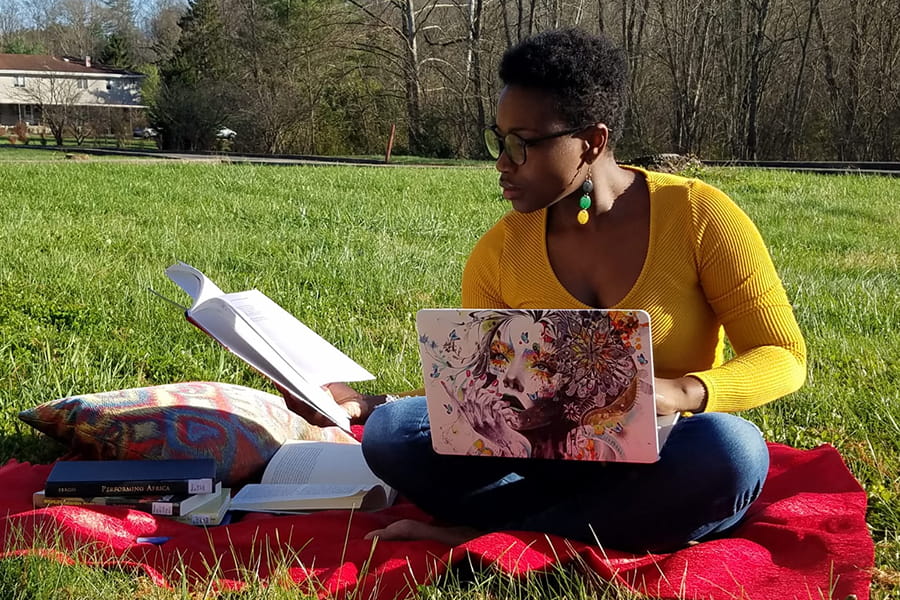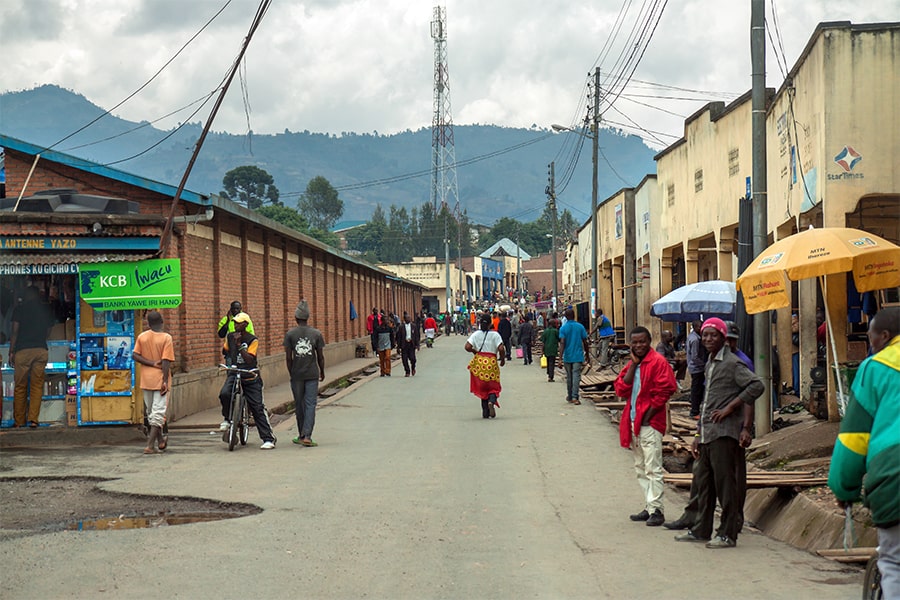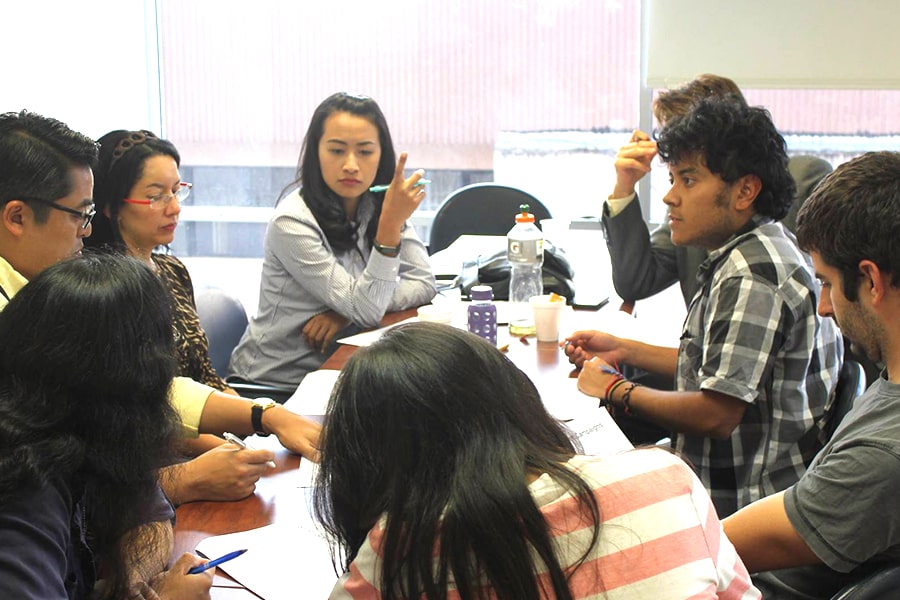- Home
- The McCormack School
- Conflict Resolution, Human Security & Governance
Welcome
Want to improve the planet and help communities? We can help.
If you value practical experience, civic responsibility and academic excellence we invite you to explore our internationally-ranked graduate programs and pioneering work of our faculty and research centers.
Academic Programs
Graduate Programs
Accelerated Master's

Accelerated Master’s Programs (AMP)
Earn a bachelor's degree and a master's degree in as little as five years.
About Our Department
Learn to manage conflict, build security, and govern local and global organizations through our programs. Collaborate with our faculty who are internationally-recognized scholars and practitioners in fields spanning conflict resolution, human security and global governance. More about our research areas

Take a Class
Start earning credits by taking a class as a non-degree student. This allows you to assess the content and structure of the program before applying. These graduate-level credits can transfer to one of our graduate degrees (restrictions apply).
About Taking a Class
This is a great way to "sample" the programs before applying and evaluate whether it meets your goals and interests. You must have a bachelor's degree to enroll and if you earn a B or better, and are later admitted to one of the degree programs listed below, the credits will count towards degree (maximum of 6 credits allowed).
- Conflict Resolution MA
- Conflict Resolution graduate certificate (in person, online, hybrid)
- Global Governance and Human Security MA
- International Relations MA
Visit the Bursar’s website to research costs. All courses are subject to regular session rate and New England regional rate is not applicable for non-degree students.
Please visit the guest student section of the Registrar's website for more information regarding non-degree registration.
Contact conresglobal@umb.edu for more information.
Take a Class Options
If you value practical experience, civic responsibility and academic excellence we invite you to explore our internationally-ranked graduate programs and the pioneering work of our faculty and research centers.
Contact conresglobal@umb.edu for more information.
Following are examples of courses that may be offered to non-degree students:
Issues in Conflict Resolution Practice - Technology & Peacebuilding (online/asynchronous) In an era where tweets can spark revolutions and algorithms can predict wars, Technology, Social Media, and Conflict Resolution offers graduate students a unique opportunity to master the digital frontier of peacebuilding. This dynamic course bridges theory and practice to explore how artificial intelligence, social media, and data-driven analytics are transforming the landscape of conflict and cooperation. Students will engage hands-on with PeaceTech tools like ArcGIS and AI-based early warning systems, critically examining both their power and peril. Through case studies from Ukraine to Sudan, and assignments that design real-world digital interventions, participants will gain the analytical, ethical, and technical skills to lead in the emerging field of digital peace practice. Whether you aim to work in humanitarian response, diplomacy, or conflict prevention, this course equips you to navigate — and shape — the technologies redefining global peace and security.
Immigration & Conflict This course provides the participant with an opportunity to develop a deeper understanding of the dynamics of work groups, with an emphasis on processes of conflict within them, and to develop skills to deal constructively with intra- and inter- group conflict. Class sessions will deal with conceptual issues in a combination of lecture and seminar-discussion format, drawing from various literatures on groups. Students will also participate in weekly meetings outside of the regular class session with a small workgroup, consisting of a sub-set of the class, which will offer an opportunity to study group processes in vivo with the aid of a facilitator.
Negotiation (online/asynchronous or in person) Negotiation is the bedrock skill in this field. The course addresses the development of negotiation techniques and fosters student knowledge of the substantial body of negotiation theory that is now available.
Conflict in Workgroups This course provides the participant with an opportunity to develop a deeper understanding of the dynamics of work groups, with an emphasis on processes of conflict within them, and to develop skills to deal constructively with intra- and inter- group conflict. Class sessions will deal with conceptual issues in a combination of lecture and seminar-discussion format, drawing from various literatures on groups. Students will also participate in weekly meetings with a small workgroup, consisting of a sub-set of the class, which will offer an opportunity to study group processes in vivo with the aid of a facilitator.
Court Mediation Internship (Weekly class plus half day in court each week) This is a 6-credit course involves both a regular class meeting and spending a half-day per week in court for four months. In court, students mediate actual cases under the direction of a supervisor/coach. Students are paced in courts in Quincy or Dorchester that are accessible by public transportation. There is also a required two-day pre-court training workshop. Completion of the course fulfils requirements of the Guidelines for Implementation of Qualification Standards for Neutrals in Massachusetts.
International Political Economy This course engages students in a study of the relationship between economics and politics in global affairs, applying interdisciplinary scholarship to explore the problem of scarcity and the development and functioning of international markets. Topics may include the behavior of institutions such as the World Bank, the International Monetary Fund and the World Trade Organization; non-governmental organizations such as multinational corporations, local business partnerships, and workers unions; and other political entities situated at the domestic, national, regional, and global levels.
Virtual Summer Institute
Conflict Transformation Across Borders virtual summer institute. Registration opens March 2, 2026
Summer 2026: Zoom classes on weekdays from June 15-26, 10 a.m. - 1p.m. M-F, plus an
additional asynchronous week June 29-July 2 to complete projects. Class #2654
Spend two weeks this summer learning about peacebuilding, border conflicts, migration, and
conflict transformation together with participants and fantastic guest speakers from all over Latin
America and the world! UMass Boston, in collaboration with Latin American partner universities
in Ecuador, Brazil, Costa Rica, and Uruguay, will hold their Virtual Summer Institute on Conflict
Transformation Across Borders each summer. Students will enroll through their respective
university and participate in two weeks of virtual (Zoom) classes in June 2026. The Summer
Institute will include the analysis of concrete cases of conflict, peacebuilding, refugees and border
challenges, as well as practical skills training on conflict analysis, actor mapping, negotiation and
mediation and proposal writing, with top-level guest speakers from around the world. Cases
drawn from Colombia, Ecuador, Brazil, Haiti, Costa Rica, and the United States will provide
concrete examples. Participants will design their own proposal for a peacebuilding Intervention
and will receive feedback from a panel of experienced experts in the field, and they will produce
a 'public engagement' project such as an op ed or podcast episode.
This course will be cofacilitated by Dr. Jeffrey Pugh of UMass Boston's Department of Conflict Resolution, Human Security and Global Governance, Dr. Cecile Mouly of FLACSO Ecuador, and Dr. Monica Herz of
PUC de Rio, as well as other speakers.
For more information, contact Kelly Ward Mason at kelly.ward@umb.edu
Summer Programs
We offer academically rich summer programs focusing on Community Peace Building and Conflict Transformation Across Borders where you can earn up to 6 credits towards a master's degree. There are no prerequisites for these programs and advanced undergraduates will be considered. Contact conresglobal@umb.edu for more info.
Transform Learning into Action
Our centers and projects conduct innovative research and provide students with opportunities to gain hands on skills.



